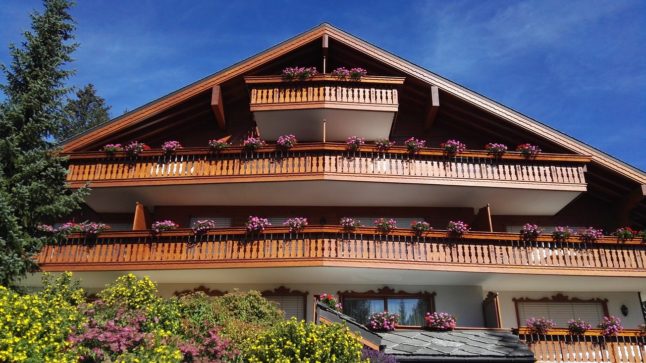The transition from town to country is not a new phenomenon but it has grown significantly during the Covid pandemic, when many people — Swiss and foreigners alike — moved from cramped cities to smaller towns and villages.
To many people, this kind of relocation made even more sense given the work-from-home requirement that had been in place off and on during the pandemic.
“There was a Covid effect on a desire for the countryside. We can say that the coronavirus worked as a kind of trigger”, Joëlle Salomon-Cavin, lecturer at the Institute of Geography and Sustainability at the University of Lausanne (UNIL), said in an interview with RTS public broadcaster earlier this year.
The pandemic, however, has not been the only catalyst at play. A study carried out jointly by UNIL and the Federal Polytechnic Institute of Lausanne found three major reasons for the move: the search for a better balance in life, the desire for a less urban and more ecological way of life, and the quest for personal well-being.
Foreign residents are no exception when it comes to a desire for a simpler, greener, and less stressful life — at least this is what emerges from the answers to The Local survey.
We asked our readers to share their experiences of moving from cities to countryside, including their reasons for doing so, and whether they are happy with the choice they made.
Most respondents had mostly positive things to say about the move.
Stephen Farmer moved from Basel to Büsserbach in canton Solothurn because he wanted to buy a house with a garden “and get more peace and quiet”.
In hindsight, “it was absolutely the right decision and I’ve never been happier”.
Before he moved, “several people told me that rural Swiss don’t like foreigners and it would be difficult for me to be accepted. But the people in my village are friendly and I found it easier to make Swiss friends here than in Basel”.

Steve Fors relocated from Zurich to Remigen in Aargau “for more space and slower pace”.
“It was the best decision”, he said. “We love our flat and village. We’ve found great friends in our neighbours and I work remotely three days a week”.
No regrets either for another reader who moved from Zurich to Walensee in St. Gallen “in order to be closer to nature and enjoy three to four times more space for the same rent”.
Since making the move, he “found more time to read and focus on things I was passionate about”.
His conclusion: “I would never move back to a large city, especially after the past two years”.
Yet another reader relocated from Basel to Lenzerheide in Graubünden but rented out the Basel apartment “in case we want to move back one day”.
So far, however, there are no regrets or desire to go back. “Quality of life is much better here and taxes are lower. I can also ski for an hour at lunchtime or go for a hike”.
Das moved from Bern to Frauenkappellen. While he was surprised by the lack of non-Europeans in the village, “it was a good decision otherwise, both in terms of people and space”.
Sometimes, the readers are brave enough to move from one linguistic region to another, as was the case for John Aran, who relocated from Swiss-German Schaffhausen to Valais in the French-speaking part.
He found the people in his new home “much more friendly”.
“I hope I won’t regret it”
While most of the responses to our poll were positive, some readers were less enthused about their move away from larger cities.
Filip, who moved from Zurich to Wädenswil to be closer to his son’s school, said their new small town “feels lonely somehow. There is hardly anyone around during the day”.
Another transplant, Sandra Shibata, who left Geneva for Valais, found it harder to make friends in her new town. “I hope I won’t regret this decision”, she said.
One reader who also made the move from Geneva to Valais offered a more scathing review of her new home: “Valais is super backward, sexist, and xenophobic, and job hunting is a nightmare here”.
READ MORE: Where do Switzerland’s foreigners all live?



 Please whitelist us to continue reading.
Please whitelist us to continue reading.
Member comments